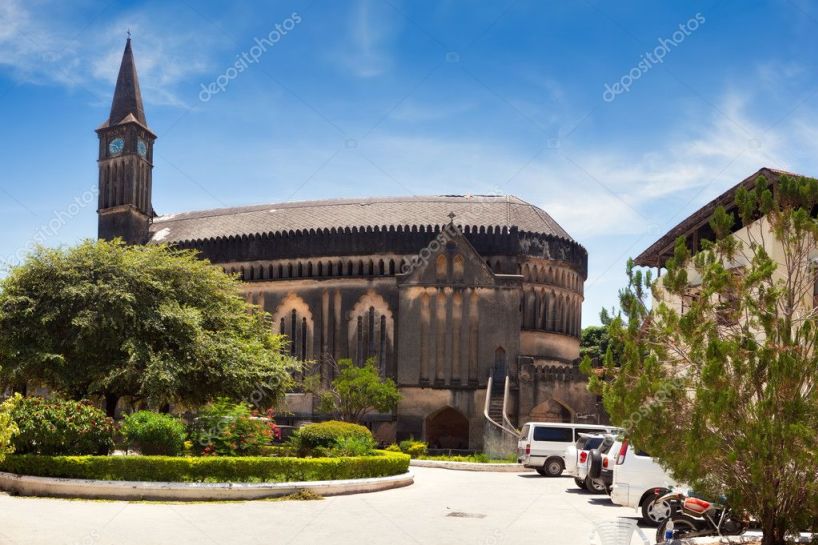What is the church and how does it look like? Many of us hold to a romantic idea of what a local church is. We imagine that a church is a place where there are no problems whatsoever, where every person is ever-smiling, is concerned about your deepest problems, and wants to hug you and tell you “Jesus loves you” every time you happen to meet. I am not trying to minimize the high standard set for church members in the Scriptures – after all, goodness, kindness and gentleness are essential aspects of the fruit of the Spirit (Galatians 5:22, 23). We can be sure that the Lord, Christ, perfectly displayed these attributes in His life on earth and does so still in His life in heaven, and so the church, His body, must likewise be! Nevertheless, we are not to live in the clouds, while reality calls us to the ground; the situation is that, these things are highly lacking in churches, not just today but have been since the first century AD.
The Bible is replete with commands to Christians as to how they are to conduct themselves, how they are to worship corporately, what ordinances/sacraments are to be administered, how they are to treat each other, and even the attitudes they are to display in the church of God. Furthermore, the standard for the believer is that “as He who called you is holy, you also be holy”. The Christian’s life is not his own, it is not to be used for personal gain or for self-ambitious progress at the expense of others – it is a life given to God in Christ, a sacrificial life, a holy life. These commands are expressive of what is expected of us, Christians, by the most holy One. Yet, they implicitly betray a weakness – not in themselves, but in their recipients, i.e., Christians. The fact that the Bible is full of such imperatives and prescriptions, especially in light of real-life situations contained in the letters of the New Testament, show our hard-heartedness and our affinity for sin. Christians are not like the elect angels who do not sin. We are forgiven sinners, who, sadly, continue to sin. However, in God’s mercy, we do not glory in our sin, but we daily exercise true repentance and always, in faith, look to Christ, our able and willing Deliverer (1 John 5:4-5)!
Thus, this becomes a daily battle for Christians in their personal lives. Yet, it does not end there. Christians do not live each in their own private island, alone. We are IN the world, though we may not belong to it. We participate in marriages, in vocations/employment and trade, in social gatherings like sports events, in family events, in government exercises like voting, and so on and so forth. Greatest amongst these is the participation in our gathering together in the local churches as brothers and sisters, to obey Christ’s commands, to encourage, rebuke, correct and equip one another. Christ instituted the church and gave clear directions, mainly through His apostles, on how they ought to be. But, has this been the case?
Consider the churches in the book of Revelation chapters 1, 2 and 3. The Lord Jesus shows Himself to John and then addresses Himself “to the seven churches” – actual churches that existed (in Asia) but representative of all churches of all time. He sends letters to them, in them describing Himself, giving commendations to them for their good works (at least 6 of the 7 churches are commended), rebuking them for their laxity and sin (5 of the 7 churches are rebuked), giving them encouragement and corrective measures (mainly by telling the errant churches to “repent or else…”) and finally a glorious promise to each of those who conquer. These chapters are full of the love, but also the judgment, of Jesus Christ to those who are His own. It is here that I would highly encourage you to read through chapters 1 to 3 of the Apocalypse. The moral and spiritual condition of most of these churches is poor, if not disgusting. The sins mentioned therein are the kind that the typical “holy” Joe would say – I don’t do that. I mean, sexual immorality? Heresy? Idolatry? Occultism? Hypocrisy? Pride and arrogance? Who does that anymore? We tend to think that sin is sin when others do it, but when we are in the spotlight, we can be quick to justify our sin, call it a small mistake or oversight, and even think that it is not sin. However, to make my point in general, I want you to see how messed up some of these churches were. This was still within 50 to 100 years after Christ’s death and resurrection – and one of the original apostles was still alive! These churches were not what they ought to have been. Yet, they were still Christ’s churches – His responsibility, His concern. He still seeks them out so that they may be what He wants them to be. Let it be noted that I am not advocating for nor defending sin and its practice in churches – rather, let it be a means to disabuse many of us of the glorified idea we have of churches.
The local church is not a social club of misfits merely – guys who share a common problem getting together for encouragement and moral support. The local church is not a trophy stadium – where the most moral persons of society meet to brag about the sins they are not indulging in. The local church is not a dance club – where entertainment is dished out for a tired group of people that are winding up after a long gruesome week. The local church is definitely not the place where you meet to show how devoted to God you are by the amount of money you give at the offertory or by the amount of influence you have over citizens or the church members. The local church is a gathering together of the saints of God to devote themselves to the teaching of Scripture, to corporate prayer without malice in their hearts, to fellowship, to remembering the Lord’s death by partaking of the Lord’s Table, to singing to one another and to God. This is where we visibly display to the world and to each other our unity, our mutual love, and even our works. This is also where we are able to stir one another to good works and godliness – as we meet together. Here, we encourage, teach, rebuke, and correct one another. We observe each other as well – even imitate those who are leaders amongst us. It is a foretaste of that life that will be lived in perfection in the age of glory – it is like living in the clouds, away from all the dirt and mud down there!
Yet, it is a foretaste – not the entire cake and cream. Many forget that the individual struggles and sins that every Christian faces is somehow projected and to an extent displayed even in the church. Christians carry within themselves sins of anger, of malice, of lust and sexual immorality, of idolatry, of hypocrisy, of unrighteous judgment, of favoritism, of self-righteousness, of pride and arrogance, even of occultism and bring these with them to church. Churches are full of congregations of believers that fall into sin. Some of the people in churches are not even true believers – even if they are church members or even pastors. This is the reality, the “ground” aspect of the churches in this present age. Many people struggle with relating to people who are different from them – different age, different social class, different ethnicity, different gender, different upbringing, different interest, and so on. Yet, differences in such elements are a reflection of a healthy church. These, amongst many other issues, plague our churches – they have ALWAYS plagued the churches of Jesus Christ. When one reads through church history, they would be both encouraged and disappointed to see how divided churches have been, sometimes over trivial and insignificant things, but also over very important and fundamental things. There is good division and bad division.
My point is this: let us not be quick to pass judgment over our modern local churches – I do not mean that we should not judge rightly, rather, what I mean is that we should not quickly make sweeping statements about local churches as if there is no hope. If there was hope for the Corinthian church which was divided, tolerated sexual immorality of a special kind, was very stingy, and entertained heresies and unholy practices during the Lord’s Table – if these were still called the saints of God – how then can we who are not the Head of the church so easily despair? For our despair does not show the sin and failure of the local churches, rather, it displays our own lack of faith in the same Lord who saw it fit to encourage, rebuke, correct and promise eternal gifts to these limping and seemingly dead churches, rather than let them fade away! We are not more special. Our modern churches will face all these problems and more. I thank God for the mistakes of the early churches and the churches throughout history – without them, I would not have the inspired letters that instruct me on how to conduct myself in the house of God. Without these errant churches, I would despair under the weight of my own unworthiness and sin – and the seeming failure of our modern churches. But, thank God for our Lord Jesus Christ! He will revive us (Hosea 6:2).



